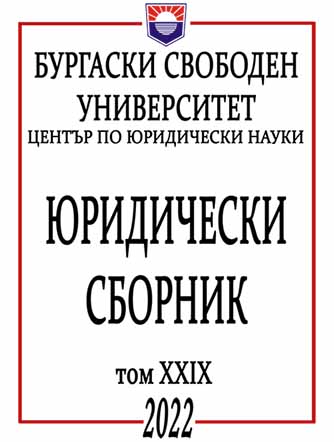РЕЗЕРВИ В ДЕКЛАРАЦИИТЕ ЗА ПРИЗНАВАНЕ НА ЗАДЪЛЖИТЕЛНАТА ЮРИСДИКЦИЯ НА МЕЖДУНАРОДНИЯ СЪД НА ООН
RESERVATIONS IN DECLARATIONS RECOGNIZING THE COMPULSORY JURISDICTION OF THE UN INTERNATIONAL COURT OF JUSTICE
Author(s): Alexander DraguievSubject(s): Law, Constitution, Jurisprudence, International Law
Published by: Бургаски свободен университет
Keywords: UN International Court of Justice; compulsory jurisdiction; declaration; reservations; ratione materiae; ratione personae; ratione temporis
Summary/Abstract: There are two types of jurisdiction of the International Court of Justice: contractual and compulsory. The latter is provided for under Art. 36 (2) of the Statute of the Court. The main characteristic feature of the compulsory jurisdiction is that its recognition is conducted by way of a unilateral act – a declaration. However, in this declaration the State can stipulate that it does exclude from the compulsory jurisdiction of the Court some of its disputes with other States. The provisions in the declaration whereby the State declares exclusion of the respective disputes are called reservations. These are three categories of reservations. The first one is reservations related to the subject matter of the dispute (ratione materiae), the second is reservations related to the parties to the dispute (ratione personae), and the third one is reservations with regard to time (ratione temporis).
Journal: Юридически сборник
- Issue Year: XXIX/2022
- Issue No: 1
- Page Range: 163-179
- Page Count: 17
- Language: Bulgarian

